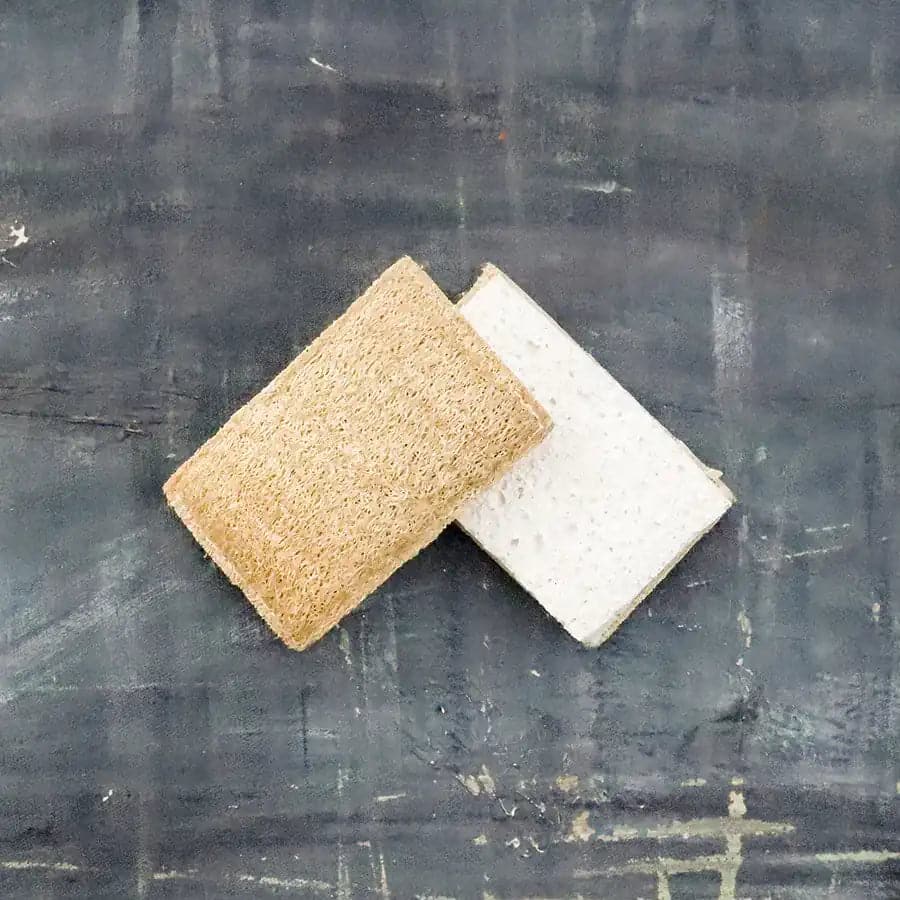1
/
of
4
Plantish
Eco Sponge
Eco Sponge
Regular price
€2,71 EUR
Regular price
Sale price
€2,71 EUR
Taxes included.
Quantity
Couldn't load pickup availability

Introducing zero-waste and eco-friendly sponges - the perfect alternative to plastic dish sponges. Crafted from wood pulp and loofah, these reusable bamboo-textured sponges embody eco chic while reducing your environmental impact.
The white part is spongy and absorbent, made of wood pulp, while the yellow-brown part is scrubby and helps soap become sudsy, made of loofah.
Loofah has been used by different cultures for centuries before plastic was mass-produced. It replaces traditional plastic sponges in dishwashing and general household cleaning.
Features
- durable: tough for stubborn dirt and safe to use on non-stick cookware, copper and stainless steel, glassware, and much more
- non-scratch: being non-scratch, they won't leave any scratches or marks on your dishes, pans, kitchen counters, windows, etc
- eco-friendly:100% compostable and biodegradable
- quick-drying: no bad smell
Directions
- soak the sponge in water
- use as a regular, normal sponge
Care Tips
- dry completely between uses
- boil in water to kill bacteria
- avoid soaking in water
- place away from high heat or flames
Disposal
- cut in small pieces, then place in the green bin to compost or directly compost in the backyard
- loofah can also be used like coconut fibre in the garden, excellent at water retention, growing seedlings, creating a potting mix, pest resistance, and used as bedding in worm bins
Why Eco Sponges?
- according to several research institutes, experts recommend changing kitchen sponges once a week due to the exposure to hundreds of different types of bacteria, which is problematic because plastic kitchen sponges and scouring pads aren't easy to break down; it takes hundreds of years to do so
- traditional sponges shed microplastics, which can't be filtered out by water treatment plants. they make their way into our water cycle, which can end up in our rivers, oceans, and drinking water
- its versatility is great for washing and scrubbing all sorts of surfaces, even outside the kitchen
- the softer side is suitable for cleaning low-maintenance items such as utensils, bowls, plates, walls, windows
- its abrasive side is suitable for scrubbing stubborn dirt and cleaning sinks or baths
Share








